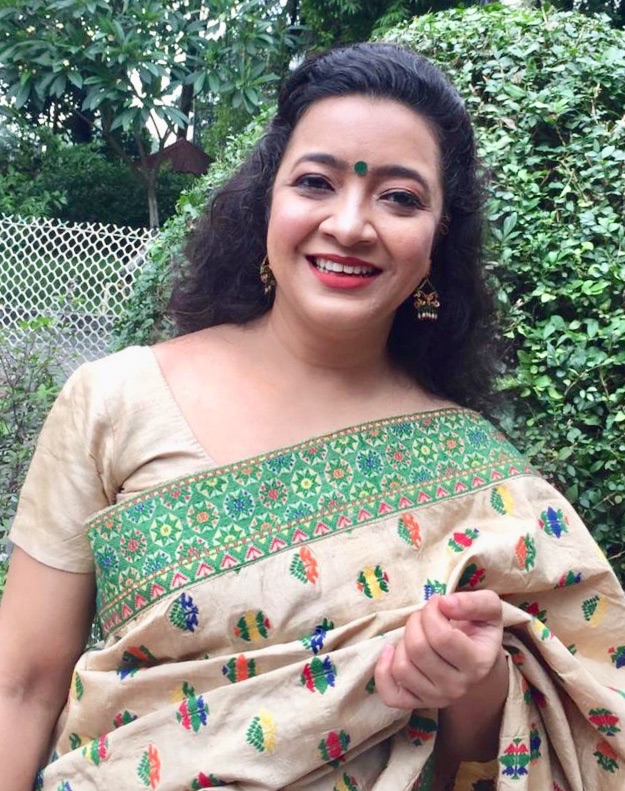Frustration and repeated exposure to violence through media makes people violent: Dr Mythili Hazarika
Frustration of individuals and repeated exposure to violence through media, reinforces the aggressive instinct and makes people violent, says eminent Clinical Psychologist Dr Mythili Hazarika.
Dr Hazarika told Muzzled Voices in an exclusive interview that violence is the reaction of individuals to their socio-economic influencers as well.
Asked if the constant bombarding of images, discussions and words depicting violence, leads to the increase in violence in the society, she said that it does have an impact on the thinking of people, which often making them aggressive leading to violence.
Dr Hazarika, who is an Associate Professor of Clinical Psychology at the Gauhati Medical College and Hospital, Guwahati, Assam, stated that secretion of certain hormones due to emotions like anger, result in violence hence, biological influences cannot be undermined. Violence can be through words too and passive aggressive approaches could often lead to violence.

She said that recent research shows that anger and violence can be genetic and certain bio-markers are implicated too. Together with genes the environment play a crucial role. Influences from the childhood have an impact on the person and that determines how people would react to various situations, Dr Hazarika said.
When people feel that a certain situation or values are opposing and conflictual to their survival or identity, they could resort to violence. It is the “we” attitude of the people or in-group vs out group thinking that makes them violent, as is seen in cases of lynching.
The psychologist said that an individual on his/her own, may not be violent or not all members of a mob are violent, but those who are violent, provoke and instigate the others to resort to violence. “Those from among the group, who are not violent, then turn violent, as they do not wish to be seen as not participating in the act. Such behaviour and thinking are exploited by the leaders of such groups. An emotional convergence takes place and they may get hypnotized too. The leaders may not themselves participate in the violence, but can provoke violence,” she said.
Dr Hazarika is with the psychiatry department of the Gauhati Medical College & Hospital since 2000. She holds a Masters degree from Pune University and did her MPhil in Clinical Psychology from National Institute of Mental Health and Neurosciences (NIMHANS), Bangalore. She did her PhD from Gauhati University and Post-doctoral training in Epidemiology and Public Health from the University of Florida, USA. Dr. Hazarika is also the President of the Society for Mental Health in LAMIC (SoMHiL); LAMIC stands for Low And Middle Income Countries.
According to Dr Hazarika, a person may not be always violent but may turn violent according to “the” situation. So violence could be situational and socio-cultural. A person who is generally peaceful, may become angry and violent in a different situation. “Here again, it is a question of I and we. If the issue affects the person in an individual level, there could be a violent reaction. Take the example of violence against women or even a situation of substance abuse and consumption of alcohol. People do not care about it, as it does not affect them or their families directly. People react when it affects them or they feel it affects them.”
She seemed pained, when she spoke about how some leaders provoke people to violence, including mob lynching. She repeatedly stressed the need to have the right influence on the individuals, from the childhood, to help them understand how to handle anger and failure. “There is generally an appropriate influence on children in a joint family,” she stated. The transition from a collectivistic mind-set to an individualistic one could be another factor for an increase in violence among younger generation.
Asked why at one point of time, people followed Mahatma Gandhi or Martin Luther King on the path of peace and non-violence, while today people seem to turn to violence, she countered by asking, “Where are leaders like Mahatma Gandhi today? Do you have any such leader of that stature?”
When probed about her statement on relationship between frustration and violence, Dr Hazarika said that not many can handle or tolerate frustration, it could be about unemployment or any socio-cultural issue and that frustration is vented through violence.
Elaborating on the role of the media, she expressed concern that many in the media lack proper training and fail to understand their responsibilities as a journalist. “They are interested in TRP and do not care about the adverse impact their news and shows would have on the people,” the clinical psychologist said.
Hailing from the North East part of India, Dr Hazarika said that people in the North East have grown up in the midst of violence in the form of insurgency, so news about violence and killing does not seem to affect them the way it would affect people in other parts of the country. There is a concept of desensitization taking place in any conflict ridden society.
On domestic violence, Dr Hazarika said that in today’s world people like to remain ignorant about others problems and are more concerned about their own families. They don’t wish to know about domestic violence in their neighbours fearing themselves getting into trouble so even if they know about its existence they do not report. In a patriarchal society, wife-beating seems to be the order of the day and women are often compelled to accept the situation, she said, referring to the latest National Family and Health Services (NFHS) survey released by the Government of India. Rationalization seems to be the best defence in certain situations in life.
Dr Hazarika said that it would be wrong to say that violence has increased in the society. “Violence has always been a part of the human race. Now we say that violence has increased and even 20 years from now, you will hear people saying the same that violence has increased. You cannot stop violence completely, but yes you can reduce its’ influential factors on the public,” she stated.
When asked what needs to be done to curb the violence in the society, she said the most important thing is to introduce life skills education in schools and colleges. “The ten life skills (recommended by WHO) need to be introduced in our education system. The ten life skill strategies and techniques identified by UNICEF, UNESCO and WHO are problem solving, critical thinking, effective communication skills, decision-making, creative thinking, interpersonal relationship skills, self- awareness building skills, empathy, and coping with stress and emotions. I feel training to cope with stress and emotions will help young people to channelise their energy, instead of converting it into anger and violence. But all these life skills will go a long way in creating a more peaceful society. Introducing classes on various acts linked to domestic violence, sexual harassment, work place violence from elementary school level is necessary because the lack of knowledge about reporting and implications of one’s actions forces one to accept violence or resort to violence.
“I have told a group of young people in Assam to identify young persons, who can be a role-model for the youth in handling situations. We need to look at the general welfare of the society, instead of our own individual, selfish personal and political interests. When each one us think of the welfare of the society, there will be less violence,”. This could be a dream like Elton John’s dream in his number “Imagine” but she concluded with A.P.J Abdul Kalam “You have to dream before your dreams can come true”.
